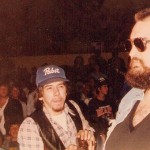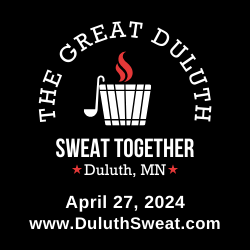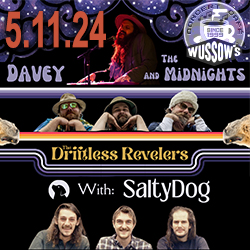Don’t Worry About It
 I played football at UMD for two years.
I played football at UMD for two years.
No I didn’t.
I was on the UMD football team for two years. I had a locker and got equipment that wasn’t as nice as what important players got. I received most of the on-and-off-campus benefits that came with being in the football fold. I made it onto the lower tier of the second-string roster for a few practices by the end of my sophomore season in 1990. I was a legit but inconsequential member of the team. I never really played. I haven’t actually played football since November 1989, when my senior season as a Rochester John Marshall Rocket ended with a loss to the Winona Winhawks.
Some fellow seniors cried on the sideline of Winona’s stadium as our high-school football identities ticked away. I felt bad about not being able to muster that emotion. I couldn’t have said it this way then, but now I know I just didn’t much care. I mean . . . I suppose I would have preferred to win. It’s just that losing didn’t really bother me and I wasn’t bereft about that season ending.
No part of football for me had to do with feeling driven to win or averse to losing. Somewhere in my dudebro teenage brain I already knew that many aspects of football are stupid and creepy and “winning” and “losing” are illusory stories we tell ourselves to create meaning we can understand in an existence we can’t.
I played because of what it felt like to await then catch a spiraling leather ball arcing from another boy toward me through October night sky. Nothing since then has felt as pure as that process felt. I didn’t think. I just ran, looked, waited, and caught. I was just present. I miss it more the further away it gets. (I’m also giving you a romanticized version of the story in those preceding sentences. I dropped three passes my senior year; all three would have been sure touchdowns; I knocked one of them out of my own hands with my knee; I still think about it a lot — sometimes I torture myself with it by using it to explain still-present definitive deficiencies — and I have no idea what I get from doing that.)
I played because of Friday-autumn-evening grass: the way it smells and the way running over it in cleats feels and the way individual blades look from an inch or two away in that brief moment of peace after being tackled and the ref is sorting out all the boys’ bodies and saying, “Push off the ground guys, not each other,” and your face is held away from the turf by a red Riddell helmet with a grey face mask, black and white electrical-tape stripes running along its spine, and a blocky white R on each side.
I played because of The Thing I got from running into other boys so hard it made us woozy in a good way (and maybe in ways that aren’t), which is a thing I’ve never been able to get from any other experience. I’ve crashed mountain bikes into trees. I once fell very hard without catching myself when the ladder I’d placed against the front of my parents’ house at a stupidly steep angle slid down the siding while I was holding a can of paint in one hand and a brush in the other. In 2003, the winter I learned to Telemark ski, I knocked the air out of myself, rang my bell pretty good, and gave myself a black eye by smashing into Spirit Mountain hardpack. None of those collisions felt like The Thing. I suspect it requires at least one other male body. Call that homoerotic if you want. It might be. I’m unconcerned if it is. But The Thing has nothing to do with the undeniable intimacy of male bodies slamming up against each other. It has everything to do with the violence of male bodies slamming into each other. Not malicious violence. Just violence for agreed-upon intentions and arbitrary reasons that have no point regardless of how much anyone on or off the field wants there to be one.
I miss all that stuff. A lot. It messed me up. I could have been so much better at it. I loved it more deeply than I know how to make sense of. At least I think I did. Maybe I hated it. Maybe both.
I did officially “play” something like 13 downs in a couple games my last UMD season. Those downs included 8 or 10 indescribably uncomfortable and sad snaps on a November Saturday morning in the Metrodome as part of the 1990 Northern Sun Intercollegiate Conference (NSIC) Metrodome Classic. That might not be what the event was called. Regardless of its name, it was a day on which all 8 or 10 NSIC football teams played each other in the dome. I think our game against whoever we played was the first or second of the day. I’m writing this in my UMD Bohannon Hall office. I could easily stroll over to the UMD Sports Information Office (where I worked in the late ‘90s) and find all the info I’m guessing about. I’m not going to. I don’t mind solo-brooding over my varisty-athletics past in my head or in a piece of public writing. I can control the conversation in those situations. I usually do everything I can to avoid reminiscing about those experiences with other people. I see them a lot differently now than I used to, and that inevitably leads to awkwardness I can deal with if I have to but that I avoid as often as possible.
After waking up at like 5:00-5:30 that Saturday morning then getting taped and putting the lower half of our uniforms on for the ride to Minneapolis, we traveled for three hours or so, finished gearing up somewhere I can’t remember (In the bus? On the sideline? I’m almost certain it wasn’t in a locker room.) then warmed up in the dome’s strangely still air. We low-level second-stringers stood around for a few hours till there was maybe a minute left in the fourth quarter. Then suddenly: “Maroon offense! Maroon offense! You guys are up next! Stretch! Get warmed up!” Then a play or two later: “Maroon offense, go! GO! Maroons, GO!”
We knew there was less of a point to it than there usually was.
Maybe that’s not true. I don’t know what the other guys “knew.” I know I felt only sadness and embarrassment. I was stiff from standing around. I felt disoriented from being idle and bored in one moment, then crouched in a three-point stance trying not to jump offside the next. I don’t think I got to run any pass patterns. (I was a tight end. Depending on the prescribed play I either blocked to prevent defensive guys from tackling my teammate who had the ball or I ran out into the field as a decoy to draw defenders away from something else going on or as a legitimate possible pass receiver. It’s a both-and position. Not either-or. That’s one of the reasons I liked it.)
And then we were finding our parents and girlfriends in the stands, and then we were back on the bus, and then we were back in Duluth.
I think I “played” a few other similar downs in a home game earlier that season. Same type of deal: stand around then go in and try not to get hurt or look bewildered and clumsy despite deeply feeling both of those ways.
Not much about college football ever felt fun to me, and I’m surprised I lasted as long as I did. I wasn’t ever mad about being low on the depth chart. I constantly felt furious at myself for not knowing how to think differently. The whole experience mostly felt miserable. It was still football. It wasn’t what football had been for me, and I wasn’t smart or tough enough to know what to do about that. I did have some neat, contemplative private moments during practices, checking out changing leaves and inhaling autumn air.
Had I known some things then I know now about how to channel rage and shut off certain parts of my brain I would have been able to conduct myself with enough meanness to transcend being smaller and weaker than the other tight ends and way slower than the flankers and wide receivers. (And if someone can explain the difference between “flanker” and “wide receiver” to me, I’d appreciate the help. I don’t much care for watching football, but I do like knowing what words mean.) I could catch the ball very well. Even then, less sure of myself than I am now, tortured by dropping three passes when I was 17, and afraid of way more than I needed to be, I knew I could catch the ball. I knew I could get at least as good as some other tight ends. I knew my brain was a bigger impediment than my body was. I just didn’t know what to do about my brain.
During our 1991 spring intrasquad game I got to run plays with the top-tier second-string offense. I’d been sort of starting to get stronger and meaner. I’d glimpsed what my body could do if deep thoughts would just stop getting in its way. I wasn’t necessarily sure of myself, but I was starting to feel closer to credible as a tight end who could see some real game time if one of the starters got hurt or needed a break. I had redshirted my freshman year, which meant I still had the 1991, 1992, and 1993 fall seasons to play. I’d seen how other guys had developed from mannish boys into boyish men, and somewhere in my brain I knew I could do that.
After he was satisfied with what the first-string offenses and defenses had done during the spring game, Coach Jim Malosky called for the second stringers. It was show-and-prove time. My memory is that we ran a few plays that didn’t require a whole lot of me — didn’t depend on a running back carrying the ball through a hole I had responsibility for helping to open. Then he called a play that did exactly that. It required me to line up at the end of the line of scrimmage on the right — the formation was strong right — and block down (toward the middle of the field) on the defensive tackle who would be lined up just to my left, in the gap between me and the offensive tackle, who would be blocking the same direction against the nose tackle or an inside linebacker coming up to fill the hole between the tackle and the guard. The fullback and a pulling guard would be coming behind me and heading straight up the hole or blocking out, trying to move the defensive end, outside linebacker, cornerback, and whoever else saw what we were trying to do and wanted to tackle the halfback. If all went according to plan, the halfback would get a handoff from the quarterback and there would be a relatively huge unimpeded space caused by me blocking to the left and the other guys blocking straight ahead and to the right. It all felt so important in that moment.
My job was to block a guy who was a year younger than me and taller, stronger, and much less concerned with leaves, air, the poetry of sport, or anything other than kicking everything’s ass. If he felt self-doubt it was not apparent. It sure as hell did not affect his football playing. When I tried to block him he very easily threw me out of the way and tackled the halfback I was supposed to protect. Frustrating, but no big deal. Everyone gets beat sometimes. Even though I was a head case, and I already knew the mistake would haunt me for a while, I had enough experience to know that sort of stuff was just going to happen sometimes. I had enough grit to feel eager about getting up and going back at it.
Malosky called the same play. I failed again.
“Jesus Christ, Chris,” he said. “I can’t play your ass in a game if that’s what you do in practice.” Then he told me to get the hell out of there and let somebody who could do the job have a shot and I have no idea how long the rest of the game lasted or whether I played any more downs or what else happened.
I was not the first person Malosky had said those same things to. Shit, I wasn’t the first person he’d said them to that day, and he’d screamed the same (and much more insulting) things to guys who were incredibly hard-nosed, mentally tough, experienced, and competent players. I’d seen and heard him do it hundreds of times since fall 1989. One part of my brain knew not to take what he’d said personally. It wasn’t about me as a human being or even a player; it was about those two plays, and it was about what he got from making young men feel small for a moment, and I knew I could take it as a motivational challenge (which I think he partially intended and partially didn’t). I’d watched other guys use his insults as motivation and eventually become starters. The other 99.76 percent of my brain processed the failures and Malosky’s comment about them as an indictment of my skill, my fortitude, my potential, and every other characteristic I felt deficient in. “He sees me,” some cruel part of my brain said. “He knows the truth about me. He’s right.”
I bawled that night. I went back to 8C Village Apartments, laid on the couch in the dark, felt grateful no one else was home yet, called my mom, and barely got two words out before crying so hard I had to get off the phone because I couldn’t enunciate words. I cry more easily the older I get. At 20 I never cried. I hadn’t cried since two or three months after I turned 16, when, during spring semester of my sophomore year, I spent a whole evening in the same sort of despondent, disconsolate, self-lacerating breakdown that was far more about rage than about sorrow.
Not many weeks after the UMD spring game, in June or July, in my job as a summer on-campus custodian, I was cleaning huge windows just after lunch on the ground level of a Stadium Apartments building. I was looking directly at the football field. It had rained all morning then cleared up into unimpeded sunlight, and steam was rising from the artificial turf. I got sick to my stomach when I thought about starting two-a-day practices in a few weeks. For the first time ever, I thought about quitting football. I mean I seriously thought about it. Thought about it for more than a couple minutes. Guys on the UMD team were always teasing each other about all the stuff we could do if we didn’t have to subject ourselves to pointless pressure and punishment seven days a week from August till November then again in a couple months of early-spring conditioning and outdoor practices. I’d never considered it as an actual, viable option.
A lot of the guys who joked about it the most were on scholarship, getting their tuition and fees completely paid for. I’d started as a walk-on, but Coach Malosky had offered me a $200-$300 per quarter partial scholarship for the 1991-92 school year. For two weeks I weighed that money, my identity, and everything I knew how to weigh against a seductive desire to quit that wouldn’t subside. I was living in the crummy, humid basement of a house on the corner of Ninth Street and Eighteenth Avenue East, and I remember staring at the stone walls and low pipes and huge, Freddy Krueger furnace while trying to figure out what to do. I slept very little. Listened to a lot of Ice Cube and Simon and Garfunkel. I don’t remember who I did or didn’t talk to about it.
And eventually I sought the coach to tell him I was going to quit. I just didn’t see a way free from a constant version of the misery I’d felt after screwing up during that spring game. Of course there were thousands of ways to avoid or resolve it. I didn’t see them. I didn’t know how to see them. I didn’t know who or how to ask about it. I made the decision I knew how to make.
While on a search for Coach Malosky I found his son, Jim Jr. I felt less intimidated by him than I did by his dad, but my voice still shook when I admitted my plan. He seemed sincerely disappointed and asked if I was sure about it. He probably would have talked to me about it if I’d have asked. I didn’t know how to ask. I wouldn’t have known what to ask about.
I didn’t find Jim Sr. until a couple days later, while on lunch break from the custodial job. I can’t remember if I’d gone looking for him or if I just happened to be on my way to the locker room for something, but suddenly there he was. He’d been playing tennis, as he did most summer days. No shirt. Incredibly deep tan and bleached-white chest hair. White shoes, socks, and shorts, with a white ball cap that said UMD in maroon. Shorter than me but far more imposing. Masculine-handsome in a square-jawed way common among white men from small Midwestern towns who went to World War II and Korea. His knees were shot and he hobbled — he’d quarterbacked the Golden Gophers in the ’30s, with Bud Grant as a teammate — but he was strong and virile and he emanated a confidence I envy.
We were walking toward each other, about to pass in a narrow, windowless hallway. He didn’t know what I’d been putting myself through. I couldn’t explain it to him. I still doubt he would have cared (and I don’t blame him). I didn’t try. I’m tempted to try to explain those weeks in more agonized detail than I did a couple paragraphs up, but I’m not a good enough writer to really show what I want to show you about that time’s significance in who I was and who I am.
“Hi, Coach,” I started. I never had any idea if he knew who I was. He had very few reasons to. I might have looked vaguely familiar. I didn’t know if I should tell him my name. I didn’t.
“Hi,” he said, seeming like he wasn’t going to stop.
“Coach can I talk to you for just a moment?”
He slowed down a little bit. “What is it?”
“I just need to tell you I’m not coming out this fall.”
“Yeah.” He smiled. “I talked to Jimmy. Don’t worry about it.”
He kept going. I don’t know if he’d really even broken stride.
“OK. Thanks.”
And that was it.
I hadn’t expected him to . . . I don’t know what I’d expected. I was inconsequential to the team. I had no relationship with him. I was probably among the least-memorable or interesting players on the Army and high-school and college teams he’d coached since the 1950s. I guess I thought he’d maybe give me a courtesy, “Don’t make the decision too quickly,” or “There’s no harm in sticking with it,” or something else noncommittally encouraging. Money wouldn’t have changed my mind. Something like this might have: “You should do what you believe in, and to be honest you strike me as a cowardly pain in the ass, but you also have no idea how good you can be and you’re going to regret quitting more than you’ll ever regret having bad days in practice.”
I wasn’t a football player anymore. I hadn’t felt like one for at least a couple years, but not feeling like one and not being one are two different things.
I can’t remember what the next few weeks were like. The woman I was dating was incredibly kind to me even though jocks and our angst weren’t really her thing. Before practice started in August I told my buddies, mostly football players, what I’d done. I was afraid they wouldn’t remain my buddies. They did. They have. A few guys told me they were jealous I’d had the guts to quit. I think we both knew they didn’t mean it. I started writing for the school paper, covering the football team. The first game I went to that fall is still one of the most grief-stricken experiences of my life. I haven’t had to deal with much real grief. Experience tells me that even if I had — even if I had known significant grief between 20 and now, at 46 — I would still remember the sensation of that game as unusually and legitimately tough to bear.
I got over it and had a lot of fun going to games till I graduated. It meant a lot to see good friends and former teammates do well. Sometimes I cared whether they won or lost, more because I knew how they’d feel about it than because I found value in it. I loved those guys. I love them. I believe love is experiencing joy in other people’s joy. I’ve seldom been as good at feeling or showing love as I would like to be.
It’s weird to teach at the school where all that happened. Some days it feels more pathetic than weird. What the hell am I still doing here? Why didn’t I leave town after getting my first degree? Or after my second? Or after teaching for a few years? Why did it take not being invited back after that one semester for me to go teach somewhere else? Why did I come back to do more teaching and get another stupid degree? What’s credible about any of that?
Some parts of campus still look and smell exactly as they did on this day 28 years ago.
Ghosts, including those of boys and young men I used to be, abound.
I used to sometimes go out of my way to walk through that windowless hallway where I quit, for reasons I’m not quite sure of. I’m not sure of much. The door to the hall now requires a keycode to open. I’m grateful for that.
Recommended Links:
Leave a Comment
Only registered members can post a comment , Login / Register Here















3 Comments
TJ Nomeland
about 7 years agoCabby
about 7 years agoChris Godsey
about 7 years ago